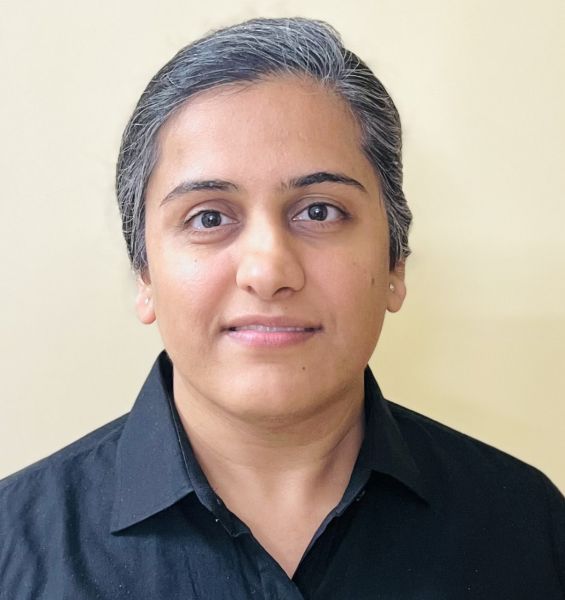This episode of Dinis Guarda YouTube Podcast, features Damu Winston, an international digital advisor, entrepreneur, and author of the bestselling book, “I Don’t Trust You, But Blockchain and Bitcoin Will Help”. Host Dinis discusses with Damu, Founder of Finteachable.com, the need and impact of education in fintech and future trends within the industry. The episode, powered by Businessabc.net and citiesabc.com also highlights the underlying aspects of Blockchain technology.

Damu Rufaro Winston, is an international digital advisor, serial entrepreneur, and a global thought leader recognised for pioneering advancements in emerging technologies at Amazon and other Fortune 50 corporations, including IBM, Wells Fargo, Duke Energy Corporation, and Bank of America. Damu is the Global Head of Web 3.0 Innovation at Amazon.
Through his entrepreneurial ventures, Winston Trust and Fintechable, Damu is committed to advancing fintech through innovation and education. Damu’s leadership and contributions to the digital landscape make him a key influencer in shaping the future of digital transformation worldwide.
“We are now shifting to what I call intellectual service. However, our academic system teaches us to just do and repeat. Now, the world is forcing people to become entrepreneurs and change a system that has been in place for years and years. But becoming an entrepreneur is hard and can lead to many challenges. In this aspect, we need to learn to fail and see it as an opportunity to learn and improve in the future. And to collaborate with each other is the only way to be stronger and successful”, he says.
During the interview, he tells Dinis: “I feel there is a lack of trust today towards our financial system, technology, among peers, etc. When I think about blockchain, I see a solution for that lack of trust. Blockchain is an infrastructure that actually leverages trust in existing systems. In my book, I try to explain how blockchain works and use cases where blockchain is already implemented and working.”
Damu Winston is a global thought leader and bestselling author of “I Don’t Trust You, But Blockchain and Bitcoin Will Help.”
Blockchain: Building trust and transparency
Damu is the author of the bestseller ‘I Don’t Trust You, But Blockchain and Bitcoin Will Help’. The book addresses the growing issue of distrust in today’s digital world and proposes blockchain as a solution. Speaking about the need for blockchain enabled financial infrastructure, he says:
“Blockchain as an infrastructure of trust means that the people are part of the network or the community. We see a common truth and so that’s what I wanted to highlight here. This understanding of blockchain technology is not as complicated as some academics try to make it out to be. It is an infrastructure technology something that most of us will never ever see whatsoever. All we really care about is that our solutions that we have work and so infrastructure is just like a road that we drive on or that we (when we fly) land on. It’s just infrastructure.
I just wanted to find a way to demystify what the technology is and also talk about actual and real implementations that are happening in the UAE and around the world. I just wanted to highlight that we have so much distrust in the world and that we all need to establish a common form of trust amongst peers.
I’m confident from what I’m seeing in industry and what I’m teaching that this blockchain is the way forward or DLT or Interledger, all of that I encompass it all together in the same bucket because there’s small differences when we really look at it.”
Empowering fintech education with personalisation
Finteachable, founded by Damu, offers personalised training in fintech. “Our main focus is personalised training by thought leaders and experts in financial technologies,” he told Dinis.
He said, “Fintechable is a marketplace for fintech experts identity I call them teacherpreneurs so a lot of us who are academics who are or a better state a lot of us who are practitioners eventually you get to a point where you really want to follow your passion or because of covert you know the opportunities are not as plethora to be in the actual classroom so I’ve really created a platform a really niche platform for experts like you and I too share our expertise with people who want those those insights I call it tribal knowledge is what we have you and I have worked in multiple projects and we understand how things actually get done versus what you see in textbooks where oftentimes they’re conceptual or case studies that are actually you know an anomaly right we try to teach what’s practical and what’s local so I call no localization is a big piece of it and so again what I’m doing now in the region is I’m teaching every single bank here in the UAE on really how to implement what are some of the emerging technologies and things that they should be implementing today if they haven’t already implemented which a lot of them have not just the reality of it.”
Damu also emphasises the importance of adaptive learning in today’s fast-paced world. With Finteachable.com, he aims to fill this gap, offering real-time feedback and practical knowledge.
“The jobs of the future are going to focus on expertise. What we try to do at Finteachable is to focus on the things that will pay the bills within the financial services space. So, if you’re going to roll out a trade finance solution or you’re going to roll out a chat bot, or something simple like that, or you want to work on an STO security token offer, we want to teach people what are these things and what are the tools that people are actually using today to roll those type of projects out.
It’s very straightforward and we do it in a way that’s collaborative and personalised because we have to personalise it to the audience. You just can’t teach something that’s very generic and everyone will get it. If you’re looking for something where you can ask questions in real time, you can get feedback in real time, you can for another example. I think they’re “I’m not really aware of any other platforms in the middle east whatsoever that are like that like what we’re doing”, he explains.
Future trends and innovations in fintech
“The whole financial system is being transformed. Technology and new processes, including a new mindset, are creating an opportunity to disrupt the entire financial system. And that means that financial inclusion is more real than it has ever been”, Damu tells Dinis.
Highlighting the upcoming trends in the industry, he says:
“I see a big trend coming in the form of Central Bank Digital Currencies. We will see different national institutions embracing CBDCs in the next few years.
Another trend is regarding value and currencies. What is happening today with our FIAT currencies is that the concept of value is being broken. Hyperinflation, the role of central banks, the economic crisis, etc is making the currency’s value to change. On the other hand we have emerging cryptocurrencies, which are based on other rules, are more distributed, are borderless and worldwide which value is created differently.
And that is because -or highly fueled by- technology: technology allows us to be more efficient and therefore drive more profit, while also improving the ROI, which is key too in our current financing system. And that not only applies to business growth but also healthcare, governments departments, etc.”

Pallavi Singal is the Vice President of Content at ztudium, where she leads innovative content strategies and oversees the development of high-impact editorial initiatives. With a strong background in digital media and a passion for storytelling, Pallavi plays a pivotal role in scaling the content operations for ztudium’s platforms, including Businessabc, Citiesabc, and IntelligentHQ, Wisdomia.ai, MStores, and many others. Her expertise spans content creation, SEO, and digital marketing, driving engagement and growth across multiple channels. Pallavi’s work is characterised by a keen insight into emerging trends in business, technologies like AI, blockchain, metaverse and others, and society, making her a trusted voice in the industry.












